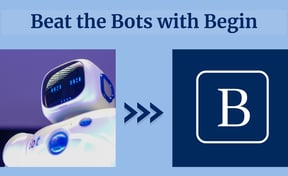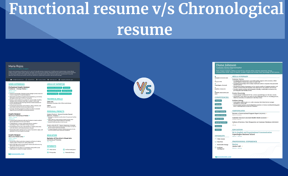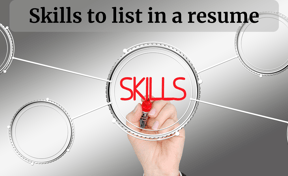Never miss these sections in your resume!
A resume is filled with many sections, every section playing an important part. But, is every section mandatory? What to do when you have nothing to write in certain sections like certifications or awards? Every resume is not created equal. While some sections can be skipped, some cannot be skipped, no matter the job posting.
Every resume is split into two parts; one that is basic, and the sections included in this part are compulsory and cannot be skipped. The other is optional, it would be a nice addition if you add them to the resume. A good mix of these two would make a resume that would fit your requirements.
Five sections are mandatory. These are:
Personal information:
Personal information is really simple as compared to others. Your name and contact information are to be mentioned in the personal information. The most important information to include in this is your name, phone number, and email address. If you want to add more information, then you can add your professional title, LinkedIn URL, social media handle, and blog/website URL. Your name should be in the legal form; that is, your first name and last name as they appear on your identification card or passport. You can also add professional acronyms that you have earned after your name. For example, Krishna Patel, CPA.
This might seem the most obvious, but it is worth repeating that you should never skip this. You don’t want your hiring manager to wonder whose resume he has and how he can reach you.
Work Experience:
Your work experience would be a major part of a resume. This section would answer the question, “Why should we hire you?” If you are a senior-level candidate, then you should list 15 years of relevant work experience. If you are a junior-to-mid-level candidate, you should include all the relevant work experience, whether that is from internships, freelancing, or part-time jobs.
Relevant work experience means past positions, jobs, and training that are related to the job position. You cannot mention your accounting experience when applying for a content writer job. The accountant’s experience means nothing to the hiring manager, who is looking for someone who has certain knowledge in the field of writing.
If you have just started and are an entry-level candidate, then your work experience would be all the internships, temporary jobs, independent projects, freelancing, or any work that you have been paid for. And if you are someone with zero experience, then you should include all paid and unpaid work experiences, including roles in school or university organisations, and voluntary work.
Education:
Putting down education is one of the easiest sections to write on a resume. The order of writing education is the name of the university, degree, and graduation year. Education should be in reverse chronological order. If you have your degree from a university or college, then you don’t need to add your high school information.
If you are a student or someone who does not have a lot of work experience, then your education section would come before the work experience section. However, if you have experience, then your education would come after that.
This section would let the hiring managers know what technical skills you have. Educational qualifications related to your job position would make the hiring manager trust you more easily. If you have been awarded any certificates or awards for your work during your course period, then mention that also in the resume.
Resume objective or summary:
Your resume summary would be a compilation of your relevant skills, experience, and achievements. It should be written at the top of your resume in 3-5 sentences, and it should be convincing enough to get the hiring manager to read your entire resume and consider you as a candidate.
General resume summary example: “Civil engineer and PE with a focus on detail who has five years of experience and a passion for tackling challenging issues. Aiming to enhance quality, cost, and time metrics for NEP Engineering using proven project management and design skills.”
If you are a fresher, you should title the section as Resume objective and if you are an experienced candidate, then the section should be resume summary.
A general example of a resume objective: “English graduate with proven communication, travel planning, and email management skills. Seeking a position as an administrative assistant at Acme Inc., to leverage organizational and research skills to support internal and external communication.”
You must tailor your resume as per the job requirements. Use keywords from the resume in your summary to pass right through the ATS.
Skills section:
Many people skip this section or think of it as not so important. But showcasing your skills on the resume is important as it will show the hiring manager that you are capable of doing the job. Don’t just list your skills; add action verbs to make them more appealing.
Your skills can be both technical and soft. Soft skills are learned from life lessons, while technical skills can be taught in a classroom or on the job. Also, mention the level of proficiency you have in each. Don’t lie about your skills here. It would be a major drawback if you do so.
Every resume should have at least this much information. Showcase your strongest skills in the resume using these sections and you are bound to land yourself an interview. To make your resume even stronger you add the optional sections and make it as unique as possible.








Also read:
How long should be a resume/CV/cover letter?
Functional resume V/S Chronological resume
Skills to list in your Resume
What to write in a professional resume?
Journeywithbegin • 15 FEB, 2022
Journeywithbegin • 15 FEB, 2022
Journeywithbegin • 15 FEB, 2022
Journeywithbegin • 15 FEB, 2022
Journeywithbegin • 21 MAY, 2022





